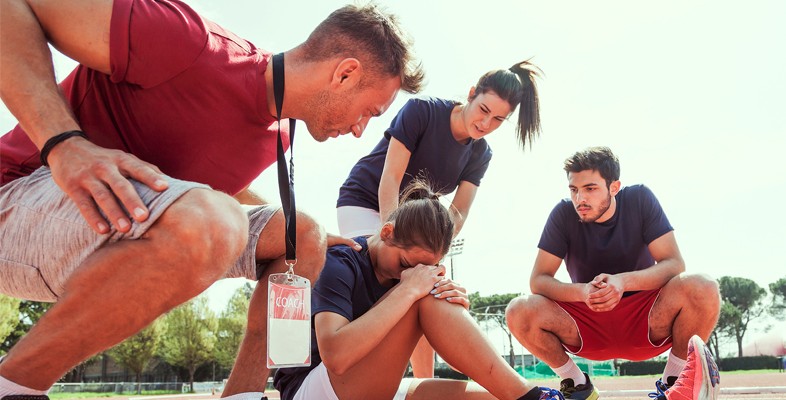Home » Course Layouts » Free Course Layout Udemy
Sports injury is relatively common among sport and exercise participants, and while the physical impact of injury is often easy to recognize, the psychological impact is not understood.
0
58
English
English [CC]
- Learn basic syntax that can apply to any language.
- Learn what is a programming language and the basic concepts for beginners.
- Understand what is Javascript in it's truest form.
- Know the basic syntax of Javascript.
- Know some hidden quirks in Javascript.
Description
Introduction
This course will develop your confidence and skills for online study, whether this is to explore sport and exercise topics or part of your preparation for another study. You’ll begin in the first two sessions with a general overview of the psychological aspects of sports injury, drawing on your own experiences and those from case study examples, before moving onto a more detailed analysis of the two keys areas of the topic:- Pre-injury factors: psychological factors that may increase the risk of sports injury
- Post-injury factors: psychological responses to sports injury and their potential impact
Course learning outcomes
After studying this course, you should be able to:- Identify the psychological factors that may lead to a sport injury
- Recognize the role sport and exercise psychology intervention can play in the prevention of injury
- Evaluate psychological responses to sport injury
- Identify psychological interventions that can aid rehabilitation from injury.
Course content
-
- Introduction 00:15:00
- What is sport injury? 00:25:00
- Injury and psychology 00:05:00
- Experiences of sport injury 00:40:00
-
- Introduction 00:20:00
- Sport injury: a biopsychosocial approach 00:10:00
- The team around the injured person 00:40:00
- Professional boundaries in sport and exercise psychology 00:30:00
- Introduction 00:10:00
- Which psychological factors increase injury risk? 00:35:00
- How can stress increase the risk of injury? 01:00:00
- How can personality increase the risk of injury? 01:00:00
- Introduction 01:00:00
- How does sports injury make people feel? 00:55:00
- Predicting how individuals will respond to sport injury 00:55:00
- Applying models of psychological response to sport injury 01:00:00
- Introduction 00:20:00
- The benefits of sport psychology intervention 00:40:00
- Imagery in sport injury rehabilitation 02:00:00
- Self-talk and sport injury rehabilitation 01:00:00
- Relaxation techniques and sport injury rehabilitation 01:00:00
N.A
- 5 stars0
- 4 stars0
- 3 stars0
- 2 stars0
- 1 stars0
No Reviews found for this course.
Instructor
Open University UK
4.8
4.8
14
43384
1068
Explore Free Courses
Access valuable knowledge without any cost.
{"title":"","show_title":"0","post_type":"course","taxonomy":"course-cat","term":"engineering-skills,health-and-safety","post_ids":"","course_style":"free","featured_style":"course6","masonry":"","grid_columns":"clear4 col-md-3","column_width":"268","gutter":"30","grid_number":"4","infinite":"","pagination":"","grid_excerpt_length":"20","grid_link":"1","grid_search":"0","course_type":"","css_class":"","container_css":"","custom_css":""}










